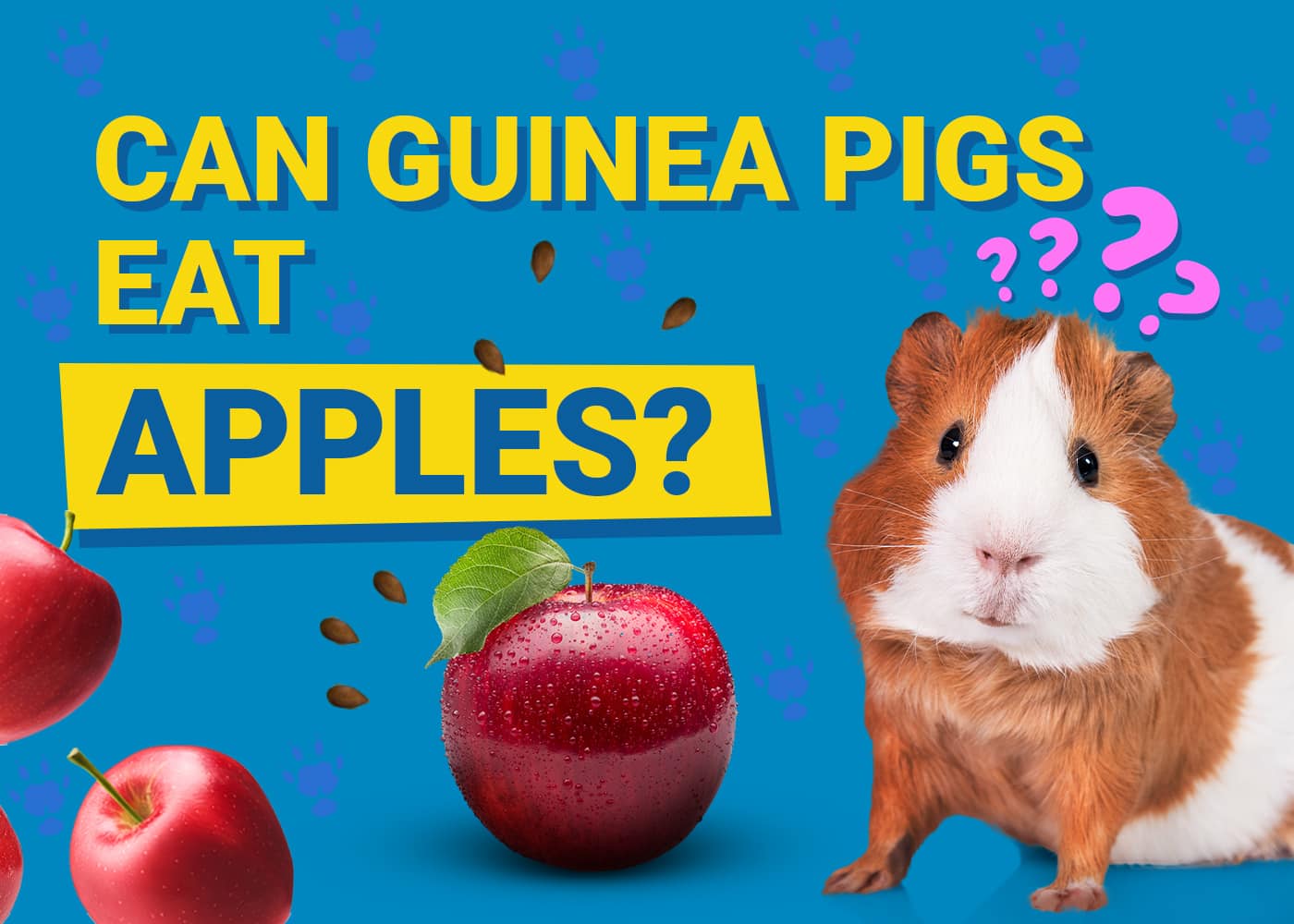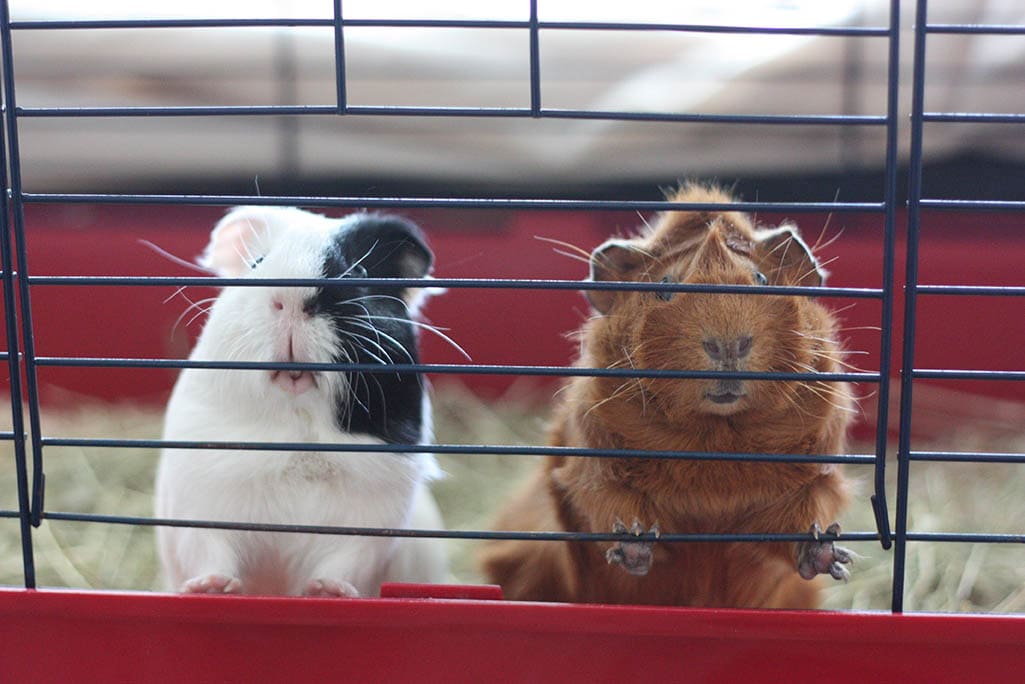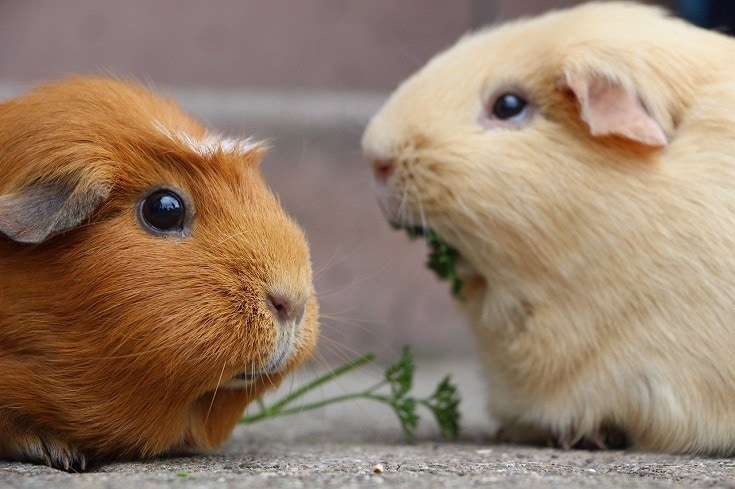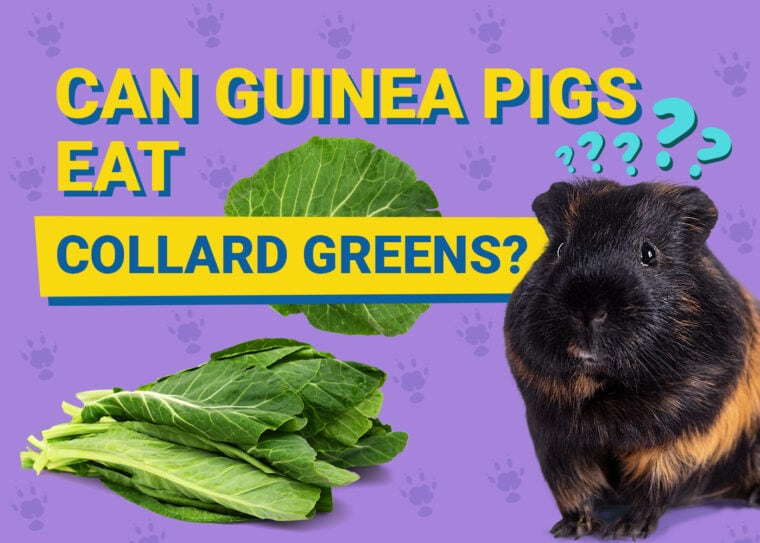
Guinea pigs have a diverse diet that consists of pellets, hay, and some fresh fruits and vegetables. It’s important to know what kind of foods you can feed your pet guinea pig so that it can live a long, happy, and healthy life.
Greens are a very healthy food to offer, and you can most definitely feed your Guinea pig collard greens but only occasionally. Let’s look a bit further into how collard greens can be implemented into your Guinea pig’s diet and go over the typical feeding requirements of these fun little pets.
What Are Collard Greens?
Collard greens are native to the Eastern Mediterranean and are members of the Brassica family, which also includes mustards, turnips, and cabbage. They are also considered leafy greens along with spinach, lettuce, and Swiss chard.
Collard greens are smooth with dark green leaves and lighter-colored veins and stems. They are a very cold hardy vegetable that contains a wide variety of nutrients including:
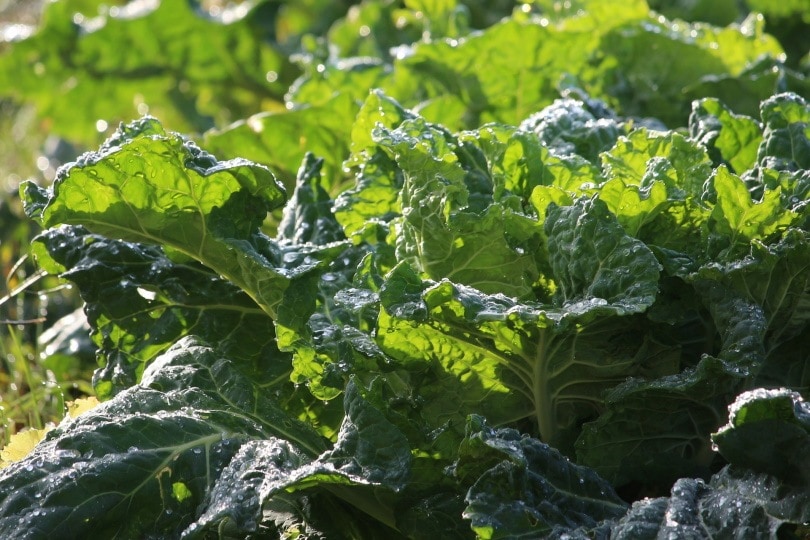
Feeding a Guinea Pig Collard Greens
Collard greens are safe to feed your Guinea pig and are quite healthy because they are so nutrient-rich. However, it is recommended to limit collard greens and other calcium-rich foods for the sake of your Guinea pig’s health.
Calcium is a bit of a tricky subject, but as with most things you can have too much or too little. Calcium is an essential part of a Guinea pig’s diet, but excess calcium can lead to bladder and kidney stones.
While urinary stones can have other causes, unlike most mammals, Guinea pigs eliminate excess calcium through their urine, so the high concentration of calcium can easily lead to the development of these stones.
Overall, high-calcium foods should be limited to 2 or 3 times per week or as directed by your veterinarian.
Other High Calcium Foods
In addition to collard greens, there are other vegetables, fruits, and herbs that are high in calcium. Remember that these foods are safe in moderation. Here’s a quick look at some other high-calcium foods:
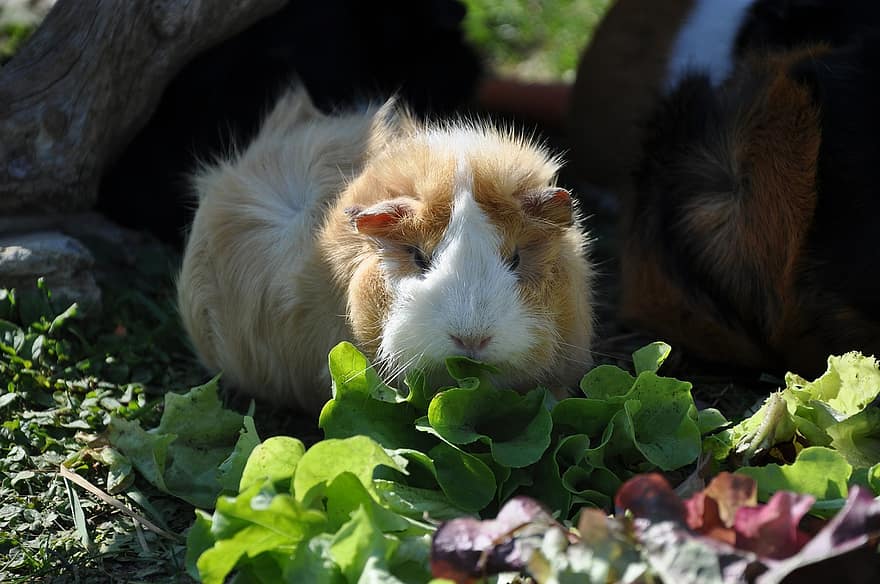
Typical Guinea Pig Diet
Guinea pigs are herbivores, so they will only ever eat plants and plant-based food. The typical Guinea pig diet should consist of high-quality hay, commercial pellets made specifically for Guinea pigs, and limited amounts of fresh vegetables and fruit.
Hay
Hay is an essential part of every guinea pig’s diet. High-quality hay should be always available because it helps aid in proper digestion and will wear down the teeth that grow continuously throughout their life. Timothy hay, orchard grass hay, or oat hay are all great options, you want to only feed Alfalfa hay on occasion, as it is high in calcium.
Pellets
Unlike most mammals, a Guinea pig’s body cannot produce vitamin C, therefore it must be supplemented in their diet. Commercial guinea pig pellets are made specifically to ensure your guinea pigs get a well-balanced diet. Make sure to follow the feeding instructions provided by the manufacturer and never purchase pellets that aren’t made specifically for Guinea pigs.
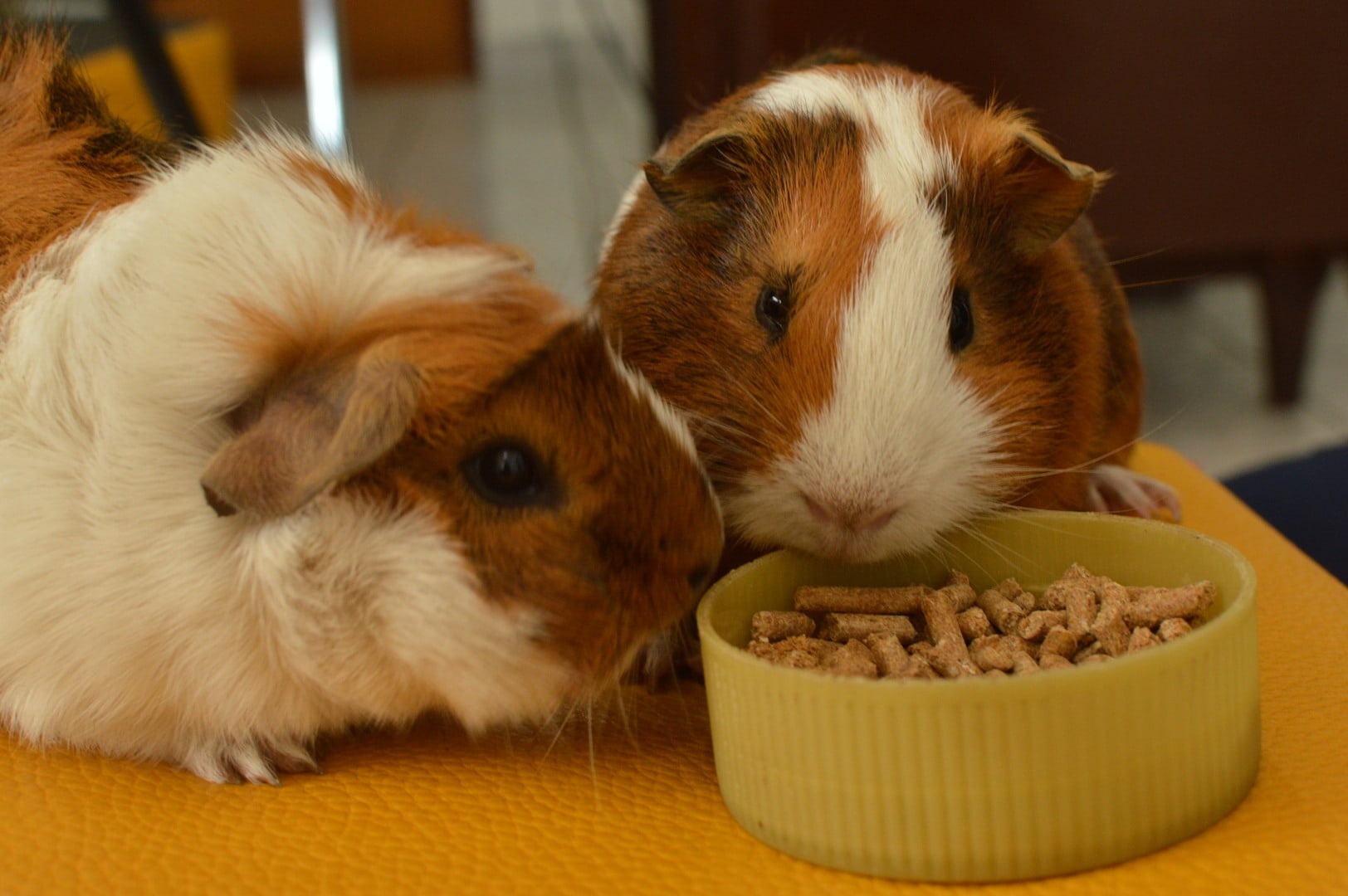
Fruits and Vegetables
You can offer your Guinea pig some fresh fruits and vegetables daily. Fresh, organic produce is the best option to offer. Remember to only offer high-calcium foods on occasion, limit fruits because of the high sugar content, and anything high in carbohydrates. Introduce any new food items slowly to ensure they are well tolerated. New foods may cause some gas or diarrhea so be on the lookout.
Recommended Fruits and Vegetables for Guinea Pigs
Here’s a list of some of the most common vegetables and leafy greens that Guinea pigs can snack on. This is not an exhaustive list.
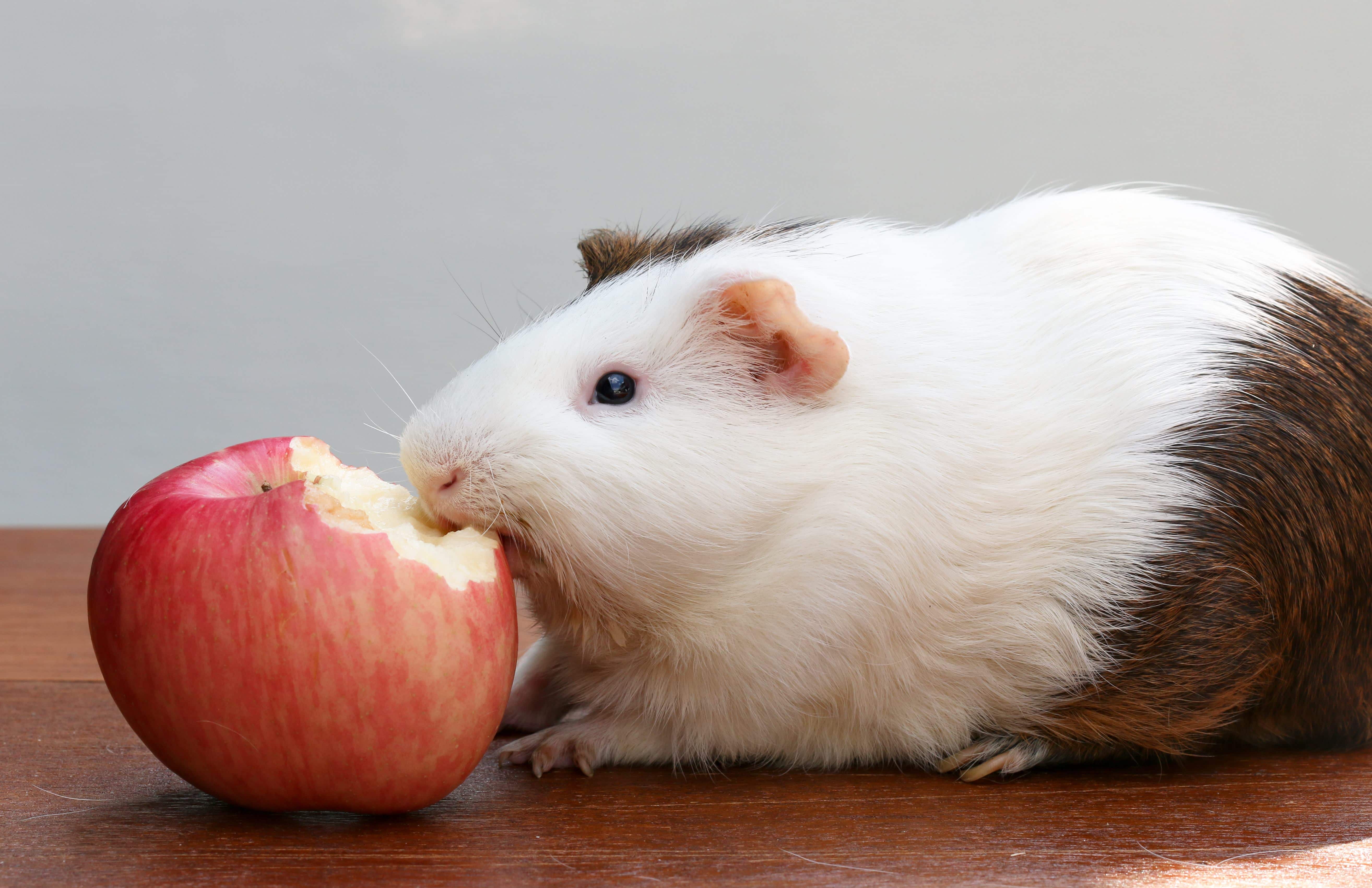
Guinea Pig Friendly Fruits
Foods to Avoid
It’s always a good idea to be aware of what food to avoid feeding your pet. There are several foods that guinea pigs should never be given. There are a variety of reasons why certain foods should be avoided, including toxicity, choking hazards, gastrointestinal upset, and even high sugar or fat content.
Make sure to speak directly with your veterinarian to discuss which foods are unsafe for guinea pigs. Some of the food that should be avoided include:
Conclusion
Guinea pigs can eat collard greens, as they are a great source of essential vitamins and nutrients. They should be limited though because collard greens are high in calcium. Calcium is essential to a Guinea pig’s diet but could lead to bladder and urinary stones if given in excess. Guinea pigs can snack on many fruits and vegetables, but you’ll want to speak with your veterinarian about the foods that are safe and unsafe to feed your guinea pig.


